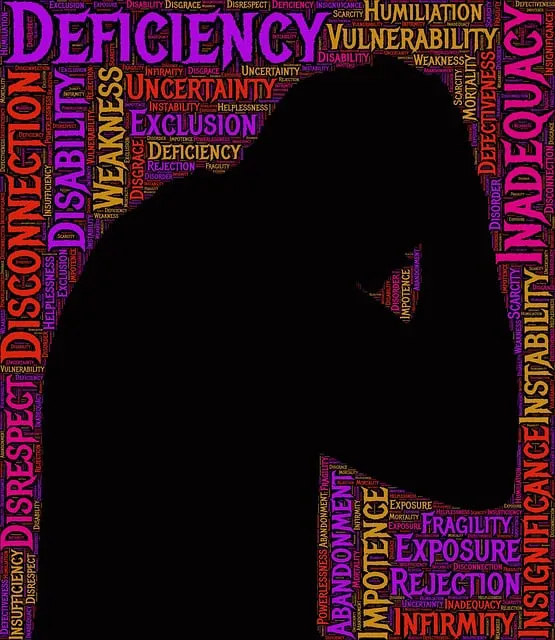Kaiser in Greenwood Village prioritizes cultural sensitivity in its mental healthcare services, addressing diverse community needs. By recognizing and respecting cultural beliefs, values, and practices, they create supportive environments, prevent burnout, and foster positive thinking. This holistic approach improves patient outcomes, bridges cultural gaps, and ensures personalized care for all individuals, answering the query: does Kaiser offer mental health services in Greenwood Village? Their comprehensive training programs equip healthcare professionals with the skills to navigate complex cultural differences, foster understanding, and provide tailored interventions, ultimately enhancing inclusive healthcare practices.
“Cultural sensitivity is a cornerstone of modern mental healthcare, ensuring equitable and effective treatment for all. This article explores this vital aspect, focusing on Kaiser’s innovative approach in Greenwood Village. We delve into how cultural competence significantly impacts patient outcomes and examine the challenges faced by healthcare providers in offering sensitive care. Additionally, we present practical strategies to enhance cultural sensitivity, highlighting Kaiser’s leading role in addressing these issues, especially in the context of providing mental health services in Greenwood Village.”
- Understanding Cultural Sensitivity in Mental Healthcare
- Kaiser's Approach to Mental Health Services in Greenwood Village
- The Impact of Cultural Competence on Patient Outcomes
- Challenges in Providing Culturally Sensitive Care
- Strategies for Enhancing Cultural Sensitivity in Clinical Practice
Understanding Cultural Sensitivity in Mental Healthcare

Cultural sensitivity is a vital aspect of providing effective mental healthcare services, especially in diverse communities like Greenwood Village where Kaiser offers its range of mental health support. It involves recognizing and respecting the cultural beliefs, values, and practices that shape individuals’ lives and their interactions with healthcare systems. This understanding is crucial when assisting patients from different backgrounds, ensuring their unique needs are met and potential barriers to treatment are addressed.
By integrating cultural sensitivity into mental healthcare practice, professionals can create a supportive environment for all clients. This includes adopting burnout prevention strategies for healthcare providers, cultivating emotional intelligence, and fostering positive thinking. Such approaches help bridge the gap between diverse patients and healthcare services, allowing for more meaningful connections and improved outcomes in mental health treatment.
Kaiser's Approach to Mental Health Services in Greenwood Village

Kaiser, a renowned healthcare provider, offers comprehensive mental health services in Greenwood Village, catering to diverse cultural backgrounds. Their approach is deeply rooted in the principle of cultural sensitivity in mental healthcare practice, ensuring every patient receives personalized care that respects their unique heritage and beliefs. By integrating this philosophy into their service delivery model, Kaiser aims to bridge the gap between healthcare providers and patients from various cultural walks of life.
The organization’s commitment to crisis intervention guidance is evident through its accessibly designed services. They provide trauma support services tailored to address the specific needs of individuals facing mental health challenges. This includes a dedicated team of professionals who offer culturally sensitive interventions, ensuring every patient feels heard and supported during their journey towards healing.
The Impact of Cultural Competence on Patient Outcomes

Cultural sensitivity in mental healthcare is a key aspect that significantly influences patient outcomes. When healthcare providers are trained in cultural competence, they can better understand and respect diverse patient backgrounds, beliefs, and values. This understanding fosters trust between the provider and patient, encouraging open communication. As such, patients feel more comfortable discussing sensitive topics related to their mental health, leading to more accurate diagnoses and effective treatment plans.
In the context of Kaiser’s mental health services in Greenwood Village, implementing Mind Over Matter Principles and Emotional Well-being Promotion Techniques can greatly benefit a diverse patient population. Mental wellness coaching programs that are culturally aware can address specific needs, taking into account unique cultural practices and perspectives. This holistic approach to mental healthcare not only improves individual outcomes but also promotes the development of inclusive services tailored to the communities Kaiser serves.
Challenges in Providing Culturally Sensitive Care

Providing culturally sensitive care in mental healthcare can be a complex endeavor, particularly when serving diverse communities like those found in Greenwood Village. The challenges often stem from misunderstandings and communication barriers that can arise due to cultural differences. For instance, patients from various ethnic or socioeconomic backgrounds may have distinct beliefs about health, illness, and treatment, which can impact their willingness to engage in therapy or adhere to certain therapeutic practices. This is where organizations like Kaiser, known for offering mental health services in Greenwood Village, play a pivotal role.
Kaiser’s commitment to cultural sensitivity involves training healthcare professionals on essential skills such as Social Skills Training, Conflict Resolution Techniques, and Self-Awareness Exercises. These initiatives aim to bridge the gap between providers and patients from diverse backgrounds. By fostering an environment of understanding and respect, Kaiser ensures that individuals receive care tailored to their unique cultural needs, ultimately enhancing treatment outcomes and building stronger, more inclusive healthcare systems in vibrant communities like Greenwood Village.
Strategies for Enhancing Cultural Sensitivity in Clinical Practice

Mental healthcare professionals play a vital role in fostering positive outcomes for diverse patient populations. To ensure effective and sensitive care, especially in communities like Greenwood Village where Kaiser offers mental health services, practitioners should adopt strategies that promote cultural sensitivity. One key approach is to actively listen to patients’ unique backgrounds, beliefs, and experiences without judgment. This involves being open-minded and creating a safe, non-threatening environment for individuals to express themselves honestly. By doing so, healthcare providers can gain valuable insights into their patients’ lives, enabling them to deliver tailored interventions.
Additionally, ongoing training in cultural competency is essential. Kaiser’s commitment to providing mental health services in Greenwood Village can be enhanced by offering workshops and resources that educate staff on diverse cultural practices, traditions, and potential challenges. This includes learning about different communication styles, family dynamics, and community norms. For instance, promoting positive thinking and burnout prevention strategies can be culturally tailored to suit various backgrounds, ensuring patients feel understood and supported throughout their journey towards mental well-being. Conflict resolution techniques that respect cultural differences can also facilitate smoother interactions between patients and healthcare providers.
Mental healthcare professionals must embrace cultural sensitivity to provide effective and equitable care. As demonstrated by Kaiser’s approach in Greenwood Village, prioritizing cultural competence significantly improves patient outcomes. By navigating the challenges through strategic enhancements, such as training, awareness, and policy adjustments, healthcare providers can offer services that are responsive to diverse cultural needs. This ensures that everyone receives respectful, sensitive, and ultimately life-changing mental health support. In light of these findings, it’s clear that embracing cultural sensitivity is not just desirable but essential in modern mental healthcare practice.






